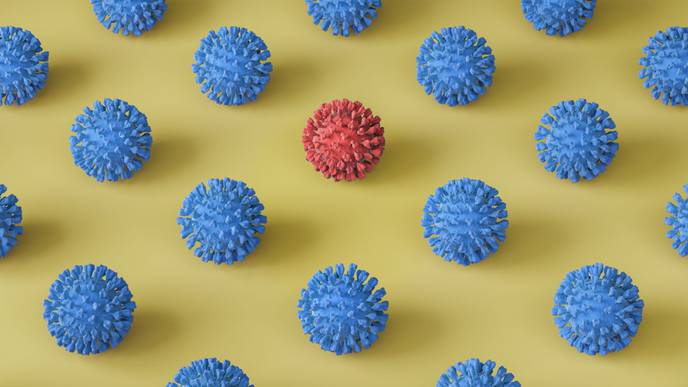ReachMD
Be part of the knowledge.™A Long-Acting Biologic with Transmucosal Transport Properties That Arrest SARS-CoV-2 Virus Variants

A Long-Acting Biologic with Transmucosal Transport Properties to Arrest SARS-CoV-2 Virus Variants
The ongoing COVID-19 pandemic caused by the SARS-CoV-2 virus has highlighted the urgent need for effective treatments. As the virus continues to evolve and produce new variants, it becomes crucial to develop innovative therapeutic approaches that can combat these emerging strains. One promising solution is the development of a long-acting biologic with transmucosal transport properties.
Understanding the Transmucosal Transport Properties
Transmucosal transport refers to the ability of a substance to cross the mucosal barriers in the body, such as those found in the respiratory, gastrointestinal, and genitourinary tracts. This property allows for direct delivery of therapeutics to the site of infection, bypassing the need for systemic circulation.
In the case of SARS-CoV-2, the virus primarily enters the body through the respiratory tract. By developing a biologic with transmucosal transport properties, it becomes possible to deliver the therapeutic directly to the respiratory mucosa, where the virus replicates and causes damage.
The Benefits of a Long-Acting Biologic
A long-acting biologic refers to a therapeutic agent that has an extended duration of action, requiring fewer administrations compared to traditional treatments. This characteristic is particularly advantageous in the context of a rapidly evolving virus like SARS-CoV-2.
By utilizing a long-acting biologic with transmucosal transport properties, it becomes possible to achieve sustained release of the therapeutic agent at the site of infection. This continuous exposure to the therapeutic can help prevent viral replication, reduce the severity of symptoms, and potentially halt the emergence of new variants.
The Potential of Arresting SARS-CoV-2 Virus Variants
The ability to arrest SARS-CoV-2 virus variants is a critical goal in the fight against the COVID-19 pandemic. By targeting the respiratory mucosa directly with a long-acting biologic, it becomes possible to inhibit viral replication and prevent the emergence of new variants.
Furthermore, the transmucosal transport properties of the biologic can enhance its efficacy by ensuring efficient delivery to the site of infection. This targeted approach minimizes systemic exposure and potential side effects, while maximizing the therapeutic impact.
Conclusion
The development of a long-acting biologic with transmucosal transport properties represents a promising approach to combat the evolving SARS-CoV-2 virus variants. By directly targeting the respiratory mucosa, this innovative therapeutic strategy can potentially arrest viral replication, reduce symptoms, and prevent the emergence of new variants.
As research and development in this field continue, it is hoped that such a biologic will contribute significantly to the global efforts in controlling the COVID-19 pandemic and ensuring a healthier future for all.
© Article Copyright 1999-2023
Life Technology™.
If you would like to republish the content of this or any other article from www.lifetechnology.com for commercial purposes visit
Life Technology™ News Content Syndication Licence. If you would like to republish the content of this or any other article from www.lifetechnology.com for non commercial purposes visit
Copyright And Royalty Free RSS Feeds For Commercial And Non Commercial Use.
If you would like for us to publish your article at www.lifetechnology.com visit
Publish Your Article At Life Technology™. If you would like to advertise here and on all 100,000+ pages of www.lifetechnology.com visit
Advertise At Life Technology™. For corporate sponsorship of www.lifetechnology.com visit
Corporate Sponsorship.
Since 1999 Life Technology™ has published medical science and technology news content totally free of charge. Because we do not charge a subscription fee we would kindly request that you
Make A Donation To Life Technology™and please, do share this article with your coworkers, friends, family and favorite social media platform.
Life Technology™ Medical NewsFeedburnerGoogleRSSLife Technology™ Science NewsFeedburnerGoogleRSSLife Technology™ Technology NewsFeedburnerGoogleRSS
Facebook Comments